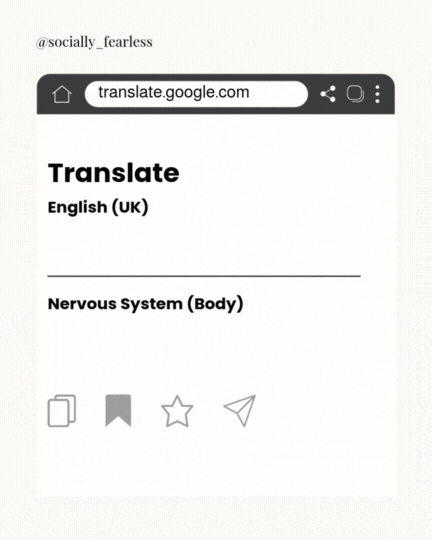Imposter Syndrome Help: Healing the Deep Wound of Never Feeling Good Enough
Maybe you're the successful executive who still feels like you're fooling everyone. The PhD student convinced that admissions made a mistake. The artist whose work hangs in galleries but who believes they're a fraud. The parent who feels like everyone else has parenting figured out while you're just winging it.
Imposter syndrome is the language we use in english. What the nervous system is feeling is that you don’t belong there, which activates primal responses.
Imposter Sydnrome
The feeling in the brain, vs the feeling your nervous system experiences.
Research by psychologists Pauline Clance and Suzanne Imes first identified this phenomenon in high-achieving individuals who, despite external evidence of their competence, remained convinced they were intellectual frauds.
What they discovered was that imposter syndrome isn't really about competence at all—it's about a fundamental disconnect between your internal experience and external reality.
You might recognise these patterns:
Attribution distortion where you credit your successes to external factors (luck, help from others, timing) while attributing any struggles to your own inadequacy. Or just responding with ‘mhmm’ when people congratulate you.
Success anxiety where achievements feel terrifying because they raise expectations and increase the stakes of being "discovered"
Perfectionist paralysis where you set impossibly high standards to "prove" your worth, then feel like a fraud when you can't meet them consistently
Chronic preparation overdrive where you over-prepare for everything to compensate for feeling inherently inadequate
Accomplishment minimisation where you downplay your achievements or find reasons why they "don't really count"
The Neurobiology of Never Feeling Good Enough
When you live with imposter syndrome, your nervous system develops specific patterns that keep you trapped in cycles of anxiety and self-doubt.
Hyper-vigilance for Inadequacy: Your brain becomes expert at scanning for evidence that you don't measure up, filtering out praise while amplifying any hint of criticism or failure.
Success Dysphoria: Instead of feeling good about achievements, your nervous system interprets success as increased danger—more eyes on you, higher expectations, greater potential for being "found out."
Chronic Stress Response: The constant fear of discovery keeps your system in a state of chronic activation, leading to anxiety, sleep problems, and physical tension.
Memory Bias: Your brain preferentially stores memories that confirm your "imposter" status while struggling to encode experiences that contradict this narrative.
Emotional Numbing: To cope with the anxiety, you might disconnect from positive feelings about your achievements, leaving you unable to internalise and FEEL success even when it happens.
Trauma-Informed Approaches to Healing Imposter Syndrome
The most effective imposter syndrome help addresses both the symptoms and the underlying attachment wounds that created them.
EMDR for Imposter Wounds
Eye Movement Desensitisation and Reprocessing can help process the early experiences that taught you that your worth was conditional. This might include:
Memories of being criticised for mistakes rather than supported through learning
Times when love felt conditional on achievement or performance
Experiences of being compared unfavorably to others
Moments when you internalised messages about not being "naturally" good enough
Somatic Approaches
Because imposter syndrome lives in the body as much as the mind, somatic therapies help you:
Recognise the physical sensations of success anxiety and learn to tolerate them
Develop embodied confidence that doesn't depend on external validation
Learn to stay present with achievements rather than immediately moving to the next goal
Heal the nervous system patterns that interpret success as danger
Internal Family Systems (IFS)
This approach recognises that the "imposter" is often a protective part that developed to keep you safe from criticism or rejection. IFS helps you:
Understand the positive intention behind imposter thoughts
Develop compassion for the parts of you that learned to doubt your worth
Access your authentic self that knows your inherent value
Create internal safety so these protective parts can relax
